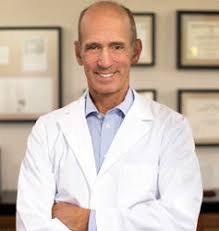
Breaking News
 Sunday FULL SHOW: Newly Released & Verified Epstein Files Confirm Globalists Engaged...
Sunday FULL SHOW: Newly Released & Verified Epstein Files Confirm Globalists Engaged...
 Fans Bash Bad Bunny's 'Boring' Super Bowl Halftime Show, Slam Spanish Language Performan
Fans Bash Bad Bunny's 'Boring' Super Bowl Halftime Show, Slam Spanish Language Performan
 Trump Admin Refuses To Comply With Immigration Court Order
Trump Admin Refuses To Comply With Immigration Court Order
 U.S. Government Takes Control of $400M in Bitcoin, Assets Tied to Helix Mixer
U.S. Government Takes Control of $400M in Bitcoin, Assets Tied to Helix Mixer
Top Tech News
 SpaceX Authorized to Increase High Speed Internet Download Speeds 5X Through 2026
SpaceX Authorized to Increase High Speed Internet Download Speeds 5X Through 2026
 Space AI is the Key to the Technological Singularity
Space AI is the Key to the Technological Singularity
 Velocitor X-1 eVTOL could be beating the traffic in just a year
Velocitor X-1 eVTOL could be beating the traffic in just a year
 Starlink smasher? China claims world's best high-powered microwave weapon
Starlink smasher? China claims world's best high-powered microwave weapon
 Wood scraps turn 'useless' desert sand into concrete
Wood scraps turn 'useless' desert sand into concrete
 Let's Do a Detailed Review of Zorin -- Is This Good for Ex-Windows Users?
Let's Do a Detailed Review of Zorin -- Is This Good for Ex-Windows Users?
 The World's First Sodium-Ion Battery EV Is A Winter Range Monster
The World's First Sodium-Ion Battery EV Is A Winter Range Monster
 China's CATL 5C Battery Breakthrough will Make Most Combustion Engine Vehicles OBSOLETE
China's CATL 5C Battery Breakthrough will Make Most Combustion Engine Vehicles OBSOLETE
 Study Shows Vaporizing E-Waste Makes it Easy to Recover Precious Metals at 13-Times Lower Costs
Study Shows Vaporizing E-Waste Makes it Easy to Recover Precious Metals at 13-Times Lower Costs
Why Your Doctor is Wrong About Cholesterol

Cholesterol is a waxy substance found in nearly every cell of your body and is essential to good health. It plays a role in hormone production, digestion and the manufacture of vitamin D following sun exposure, and helps protect your cell membranes.
As noted by Zoe Harcombe, Ph.D.,1 "It is virtually impossible to explain how vital cholesterol is to the human body. If you had no cholesterol in your body you would be dead."
Your liver manufactures most, about 80 percent, of the cholesterol your body requires, which in and of itself suggests your body cannot survive without it. The remaining 20 percent comes from your diet. However, dietary cholesterol is absorbed at a rate of 20 to 60 percent, depending on the individual,2and if you consume less, your body will compensate by making more and vice versa.
Animals use cholesterol in much the same way, hence beef, pork and chicken have similar levels of cholesterol, averaging 25 milligrams of cholesterol per ounce.3
Cholesterol has long been vilified as a primary cause of cardiovascular disease (CVD), yet numerous studies refute this hypothesis, demonstrating that cholesterol has virtually nothing to do with heart disease — at least not in the way conventional medicine presents it.
As noted by Harcombe, the notion that there is good and bad cholesterol is also wrong. Low-density lipoprotein (LDL) and high-density lipoprotein (HDL) are not actually cholesterol; they're carriers and transporters of cholesterol, triglycerides (fat), phospholipids and proteins.
"LDL would more accurately be called the carrier of fresh cholesterol and HDL would more accurately be called the carrier of recycled cholesterol," she says.4 What's more, dietary cholesterol has no impact on the cholesterol level in your blood, so how could dietary cholesterol pose a health risk?
Does High Cholesterol Cause Cardiovascular Disease?

 Smart dust technology...
Smart dust technology...

